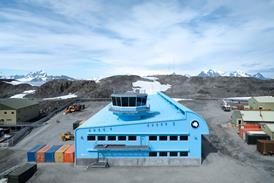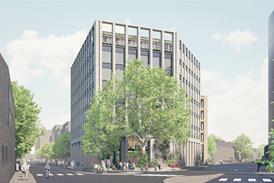Annual report says staff prioritised national infrastructure applications and casework with the most community interest

The Planning Inspectorate has admitted that it made slower decisions in 2021-2022, despite hiring more than 50 additional planning inspectors to oversee casework during the financial year.
According to the organisation, which is an executive agency of the Department for Levelling Up, Housing and Communities, the year saw a 6% increase in appeals compared with 2020-21 but virtual hearings necessitated by the coronavirus pandemic took longer than face-to-face events.
In its just-published annual report for the year to April, the inspectorate said some decisions had been made faster than previous years, but it acknowledged that “on average decisions took longer” in 2021-22.
The inspectorate said that as a result of the pandemic, decisions were taken to prioritise particular categories of casework: nationally-significant infrastructure projects, local plan examinations and appeals that required a hearing or inquiry – rather than a decision based on written submissions.
“A focus was placed on casework with the most community interest and those key to supporting the nation’s economic recovery, such as national infrastructure applications, local plan examinations and appeals needing a hearing or inquiry,” it said. “We are working hard to decide more appeals so our decisions can become consistently faster.”
According to the inspectorate, more than 17,400 appeals were decided during the 12-month period, while 34 reports on local plans were issued. Recommendations were made to the relevant secretary of state on 12 nationally-significant infrastructure projects and advice was provided on a further 70 potential infrastructure proposals.
The inspectorate said it received 21,300 appeals to deal with during the year – close to pre-pandemic levels. It said the increase in demand for services that was witnessed could have been because of delays in submitting and deciding applications during the previous year.
Planning Inspectorate chief executive Sarah Richards said the organisation had been able to maintain a throughflow of proposals needing decisions throughout the pandemic period.
“Through our use of technology, planning effectively for the future, focused resource management and robust decision making we kept casework moving through the Covid-19 pandemic,” she said.
“Overall, the speed of decision-making for our appeals service is now steady, and in some areas has improved. We have focused our efforts on the areas that are key to the economy.”
Elsewhere in its report, the inspectorate said it had been asked by DLUHC to detail what support would be required for most appeal decisions to be made in four to eight weeks.
It said the question was an “opportunity to challenge the assumptions underlining our current services operation and to explore how a reframed appeal service could be made more sustainable”.
The inspectorate said it would respond to the department before autumn.
According to the 2021-22 annual report, the median time taken to decide planning appeals dealt with by written representation was 23 weeks, but the slowest 10% took 40 weeks.
The median time taken to deal with planning appeals that required a hearing was 46 weeks, but for the slowest 10% the time taken was almost double that at 80 weeks.
The report said that the median time to decide planning appeals after an inquiry was around 25 weeks, but the slowest 10% of cases took 76 weeks.
















No comments yet